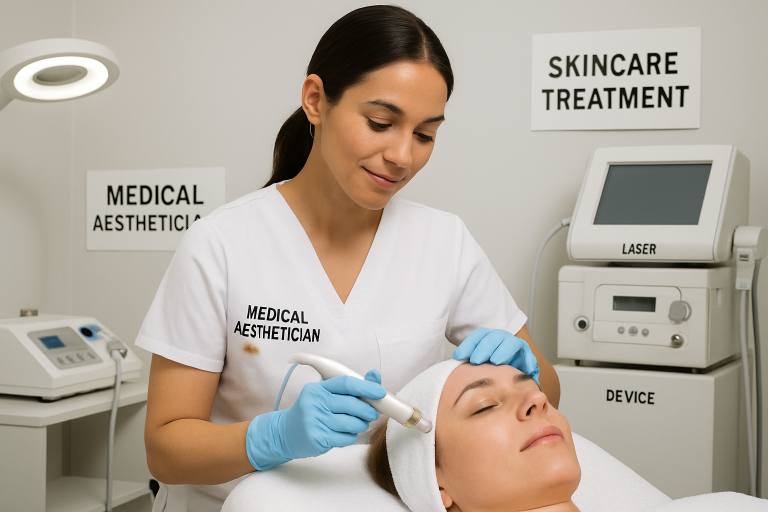Table of Contents
- Why Daily Dental Habits Matter
- The Foundations of Smart Daily Care
- Techniques That Make a Difference
- Foods and Drinks to Watch Out For
- The Role of Professional Cleanings
- What Research Says About Consistent Hygiene
- Mistakes to Avoid in Your Routine
- Tips for Busy Lifestyles
Why Daily Dental Habits Matter
People often underestimate the lasting impact of small daily actions on their oral health. What you do for your teeth each morning and night affects not just your smile but your overall well-being. In fact, maintaining strong dental hygiene routines has been linked to a reduced risk of chronic conditions, including heart disease, respiratory infections, and diabetes. Numerous studies confirm that oral bacteria and inflammation can travel beyond the mouth, contributing to other health concerns. When you make dental health a priority, you’re protecting much more than just your teeth.
Despite dental care being so accessible, millions of people worldwide still experience cavities, gum infections, and tooth loss that could have been prevented with better home routines. Oral diseases are now among the most prevalent non-communicable diseases globally. They often start silently, without pain or obvious symptoms, making daily preventive habits essential. People of all ages and backgrounds stand to benefit from being proactive. It’s about investing a few minutes each day to preserve both your smile and overall health for the long haul.
The Foundations of Smart Daily Care
Smart dental routines are built around a handful of fundamental habits that act as the foundation for healthy teeth and gums. Brushing twice a day removes the thin film of plaque that accumulates on teeth from the food and drinks consumed throughout the day. The American Dental Association recommends using toothpaste with fluoride, an ingredient that is particularly effective in repairing early signs of tooth decay and strengthening enamel against future attacks.
Flossing at least once daily is considered just as critical, even though it’s a step many overlook. String floss or interdental brushes clear away the debris and bacteria that collect between the teeth, where a toothbrush simply can’t reach. This process helps prevent gum irritation and decay along the sides of your teeth. For best results, complement brushing and flossing with an antibacterial or fluoride-based mouth rinse. Mouthwash provides an additional line of defense by reducing bacteria, combating bad breath, and promoting gum health. Creating a structured routine makes it easier to remember every step. Consider brushing at the same times each day—after breakfast and before bed, for example. Consistency is the key to making oral care second nature.
Techniques That Make a Difference
Proper technique transforms basic dental care into truly effective protection. Brushing should be done using small, gentle circular motions rather than hard, horizontal scrubbing, which can wear down enamel and lead to gum recession over time. Hold the toothbrush at a 45-degree angle to your gums to ensure you’re cleaning the gumline—a favorite hiding spot for bacteria that cause gingivitis.
Many people brush too quickly or skip areas that are difficult to reach, such as the back molars. Set a timer for two full minutes to avoid rushing. For flossing, gently work the floss between teeth and curve it into a C-shape around each tooth, sliding up and down to clear out plaque and food. Water flossers or pre-threaded picks can be a great alternative for those who struggle with traditional floss. If you have braces or dental work, ask your hygienist about the best approach for cleaning around wires and appliances.
Foods and Drinks to Watch Out For
What you eat is just as important as how you brush. Some foods support oral health, while others can undermine it within minutes of consumption. The bacteria in dental plaque thrive on sugars and starches, turning them into acids that attack tooth enamel. As noted in CDC guidance on dental health, sipping sugary beverages or snacking frequently means teeth are regularly bathed in acid, increasing the risk of cavities and erosion.
- Avoid sticky sweets, soft drinks, and sweetened coffee or tea as much as possible.
- Snack smart with cheese, yogurt, leafy greens, and raw vegetables to supply vital minerals and promote saliva production.
- Drink plenty of water, both as a substitute for sugary drinks and to rinse away food particles after meals.
- Crunchy produce like apples and celery naturally helps scrub surfaces and support healthy gums.
Acidic foods, such as citrus fruits and tomatoes, can wear down enamel if consumed excessively. If you do indulge, have them as part of a meal, rinse your mouth with water, and hold off brushing for at least half an hour to allow enamel time to reharden.
The Role of Professional Cleanings
Even when a rigorous home routine is followed, some plaque and tartar will inevitably accumulate in the hard-to-reach spots of your mouth. Professional dental cleanings every six months are crucial for removing these deposits and giving your teeth a fresh start. During a dental appointment, hygienists at Logan Dental Care use specialized tools to break down tartar that brushing and flossing can’t dislodge. These appointments also provide an opportunity for the dental team to spot early signs of gum disease, oral cancer, or other concerns.
Regular professional cleanings also offer practical benefits, including freshening breath and reducing tooth sensitivity. The dental pros provide feedback tailored to your unique mouth, helping you tweak your home routine for maximum effect. It’s a small investment of time that has big returns, saving you discomfort, time, and money down the road by addressing small issues before they become major problems.
What Research Says About Consistent Hygiene
The connection between diligent oral hygiene and broader health outcomes is well established. According to research from the American Dental Association, routine brushing and flossing reduce inflammation not just in the gums but throughout the body. Chronic gum disease, if left unchecked, has been associated with increased risk factors for systemic illnesses such as diabetes, heart problems, respiratory infections, and even adverse pregnancy outcomes.
There’s also a lifelong benefit to starting good habits early. Studies indicate that children who are taught to care for their teeth consistently will maintain these habits well into adulthood, leading to significantly fewer dental issues. Adults who prioritize dental care are 22% less likely to develop gum disease, making a compelling case to never skip those simple daily steps.
Mistakes to Avoid in Your Routine
Even with the best intentions, it’s easy to fall into old patterns that undermine dental health. One of the most frequent errors is brushing immediately after consuming acidic foods or drinks, which can erode weakened enamel. Dentists recommend waiting at least 30 minutes before brushing your teeth. Many people also opt for hard-bristled brushes, believing they clean better, but these can harm enamel and irritate the gums.
- Don’t forget to replace your toothbrush regularly, as worn bristles can’t clean effectively.
- Avoid skipping flossing, as plaque quickly hardens into tartar in hard-to-reach spots.
- Review your brushing routine to ensure you’re covering all areas, particularly the back teeth and inner surfaces.
- Always schedule professional cleanings, even when your mouth feels healthy, since dental problems often develop without noticeable symptoms.
- Remember to clean your tongue—a common source of persistent bad breath.
Reviewing your current habits and making small adjustments as needed can lead to lasting improvements in your oral wellness.
Tips for Busy Lifestyles
Hectic modern routines often make it feel like there’s no time for extra steps, but efficient and smart solutions exist. Carry a travel toothbrush and mini toothpaste in your bag or desk drawer for urgent refreshers. Disposable floss picks and tiny mouthwashes help manage dental care on the go, especially after meals when it’s tough to brush. Chewing sugar-free gum is another handy option, as it stimulates saliva to naturally clean teeth and neutralize acids.
- Set calendar reminders for brushing and flossing if you regularly forget.
- Store backup dental supplies at work or in your car.
- Make dental care part of another routine, like just before your nightly skincare or while streaming your favorite songs.
- Opt for healthy snacks that are easy to pack, such as carrot sticks, apples, or cheese cubes.
Even for the busiest individuals, forming manageable habits and making oral care convenient ensures that small actions accumulate to lifelong benefits.
YOU MAY ALSO LIKE: The Benefits of Early Visits to a Pediatric Dentist











